NEWS RELEASE
June 12, 2025
PHOENIX — Did you know the vital role that pollinators — bats, hummingbirds, bees, butterflies, among others — play in maintaining ecosystems and supporting food production?
According to the U.S. Department of Agriculture, three-fourths of the world’s flowering plants and about 35% of the world’s food crops depend on animal pollinators to reproduce. The Department of Agriculture’s website states some scientists estimate that one out of every three bites of food we eat exists because of pollinators.
Pollinator Week, celebrated June 16-22 this year, raises awareness about the importance of pollinators and the threats they face, such as habitat loss, climatic variation, and invasive species.
Arizona is home to a diverse range of pollinators. Our state ranks second in the U.S. in number of documented hummingbird species (18), has three species of nectar-feeding bats, and, according to Arizona State Parks, has more than 1,300 species of native bees.
“Bats play a crucial pollination role that differs from their sister pollinators,” said Angela McIntire, statewide bat specialist for the Arizona Game and Fish Department (AZGFD). “An individual bat can carry large amounts of pollen — after visiting a flower, they can literally be covered in pollen from head to shoulders. Arizona’s nectar bats transfer pollen between plants that are more widely separated because they can fly such long distances.”
The Arizona Game and Fish Department maintains a vibrant partnership with a number of non-profit groups that directly support the conservation of pollinators, including the Hummingbird Conservation Networks, Bat Conservation International, and the Arizona Monarch Collaborative.
“We’ve worked with Game and Fish for more than 20 years, and together have made great strides in understanding species’ migration patterns, breeding habits, and habitat needs,” said Susan Wethington, executive director of the Hummingbird Conservation Networks. “Our latest joint venture is a new monitoring and banding site we established last year on the grounds of AZGFD’s Page Springs fish hatchery near Cornville.”
People can support pollinators by growing native plants, creating habitat, reducing pesticide use, and participating in pollinator monitoring programs.
For more information about pollinator week and pollinator conservation, go to:
- https://www.savehummingbirds.org
- https://www.batcon.org
- https://www.azmonarchcollaborative.com/
- https://www.azgfd.com/wildlife-conservation/
